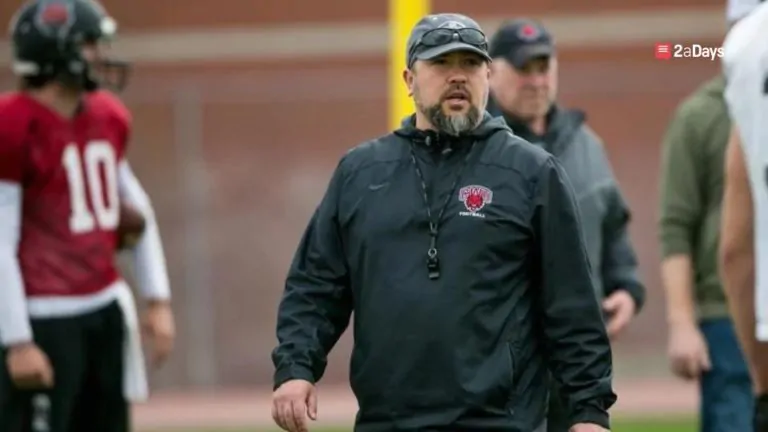The transfer portal was a controversial topic in college sports in 2022 (and the controversy will likely continue through 2023), but it's here to stay, much to the benefit of college athletes. The decision to transfer is highly personal and circumstantial and involves a bunch of questions athletes should be asking themselves before they pull the trigger. As an athlete who has transferred before, I put together an athlete's guide on recommendations for what to do when considering transferring and how to handle the process effectively.
1. Decide
Coming to terms with wanting to transfer can impact everyone differently and realizing that you want to transfer may not be an easy process. For me, the decision took place over six months. I decided to put my academic interests first, as I wanted to pursue a master's degree that my current institution did not offer. Other athletes have different reasons for why they want to transfer and come to their decision differently. A recent soccer athlete in the process of transferring said, “I am not happy where I am. I didn't even think about transferring until a counselor brought it up as an idea.” She thought about it over winter break, talked it over with her parents, and returned for spring semester confident in her decision.
Related: Rate your Coaches, Facilities, and Campus Visits
Deciding to transfer has many implications that you should consider. You should talk with trusted individuals in your life in order to sort out thoughts and feelings if it is something you want to do. These people can include teammates, parents, counselors, academic advisors, or anyone who can put your best interest in mind. If the decision makes you uncomfortable, talk it through with trusted individuals who can help you to sort out your feelings.
2. Tell Your Coaches
The first step of the new transfer portal process is to tell your current coaches or administrators. Confronting people in power or those you trust can be difficult, especially when the news involved is not positive. To prepare for this, you should ask your head coach or assistant coaches you work with to sit down for a meeting. As with all meetings, it is essential to prepare beforehand. For me, I knew telling my coaches would be very difficult emotionally for both myself and the coaches, as we developed a close relationship in my three years under their guidance. To prepare, I wrote a letter to first thank them for the opportunity to compete under their coaching and for the school. In the letter, I then described my desire to transfer to pursue an academic interest that I felt was in my best interest and the reasons for doing so. For emotional support, I also asked my dad to be present at the meeting.
Related: Thinking About Transferring? Here's What the Process Looks Like From a Coach's Perspective
Preparation for this conversation is essential as it will help you to consolidate your reasons for wanting to transfer and express that verbally. Only you can truly know your reasons for wanting to leave your current school, so be sure the message on why it is precise and controlled by you. Keep in mind that while the coach may be personally happy for you making a decision that you feel is in your best interest, right away they may have feelings of shock and disappointment for losing an athlete from their program.
3. Communicate
Having excellent communication skills is always an asset, and in transfer situations, communicating with coaches and administrators will happen more often than previously. Be comfortable asking questions when you have them. Talk to your current coaches about what they want from you. They may ask you to not practice with the team, clean out your locker, or give back gear. Compliance administrators may need information from you to help process your transfer information. Coaches from new institutions will be contacting you to discuss the possibility of attending their school. Throughout, be true to you and your desires while being a good, transparent communicator.
4. Research
As a transfer athlete, you have already gone through the process once so you know how recruiting works. Coaches are looking at who you are as an athlete, as a student, and as a person to see if you are a fit for their program. While these coaches look at you, you should also take the time to research their athletic programs. Consider what factors are on the top of your list for picking a new school and what you need to be successful. You are getting a second chance to go through the process again, so make sure you are thorough in evaluating schools so that you can set yourself up to have the most positive experience possible the second time around.
Related: How Does the Transfer Portal Work? 3 Things You Need To Know
With the transfer portal, schools can contact you, but this does not stop you from actively talking to schools on your own. Ask yourself questions like “What are my dream schools?” “Where can I be successful?” “What do I want in an academic and athletic program that my current school lacks?” Asking these questions and more will help you to understand what you want out of the recruiting process to help you find a school that is a right fit for you the second time around. Once you have your answers, take initiative and reach out to programs you're interested in!
5. Take Control
As mentioned earlier, only you can truly know your reasons for transferring. Each transfer story is individualized. When talking about your desire to transfer, make sure the story that is being put out is controlled and is yours. If the media is involved, your story can be twisted so be aware that is a message you want to be controlled. Even among teammates or coaches at your current school, keep the information you share consistent. People may be upset with you or upset about the decision you are making. Try to not take this personally, as people may not be keeping your best interest at heart.
6. Be Grateful
Being a college athlete is a blessing. Not everyone has the opportunity to be in your shoes. In a transfer situation, be grateful for the opportunities your current institution has given you. This includes the training, the mentoring, your coaches, teammates, administrators, the gear you received, and other connections and development made possible from being an athlete at that institution. Even if you are leaving on bad terms, try to not let the negativity of the situation taint the positive experiences that happened as a result of being an athlete at that school. While this may not be easy, approaching the transfer with a perspective of gratitude will not only help you, but also those around you who may feel hurt that you are leaving.
The process will not be easy. When getting a second chance to make a decision, do not leave anything to chance. Be confident with your decision and make sure to keep those who support you close during the process. Ask for advice and trust your gut.
Have an idea for a story or a question you need answered? Want to set up an interview with us? Email us at [email protected]
* Originally published on January 17, 2023, by Monique Felix







